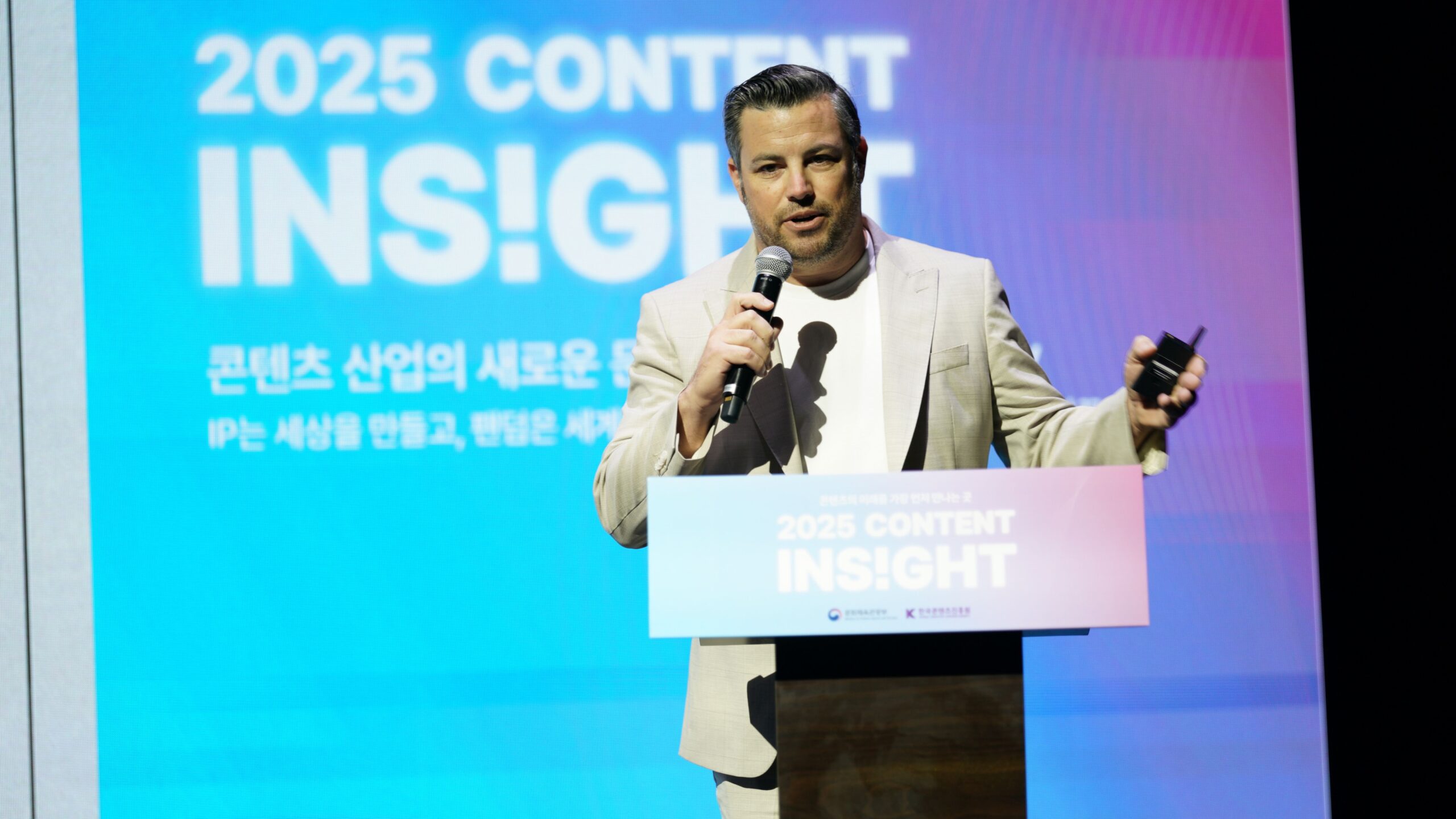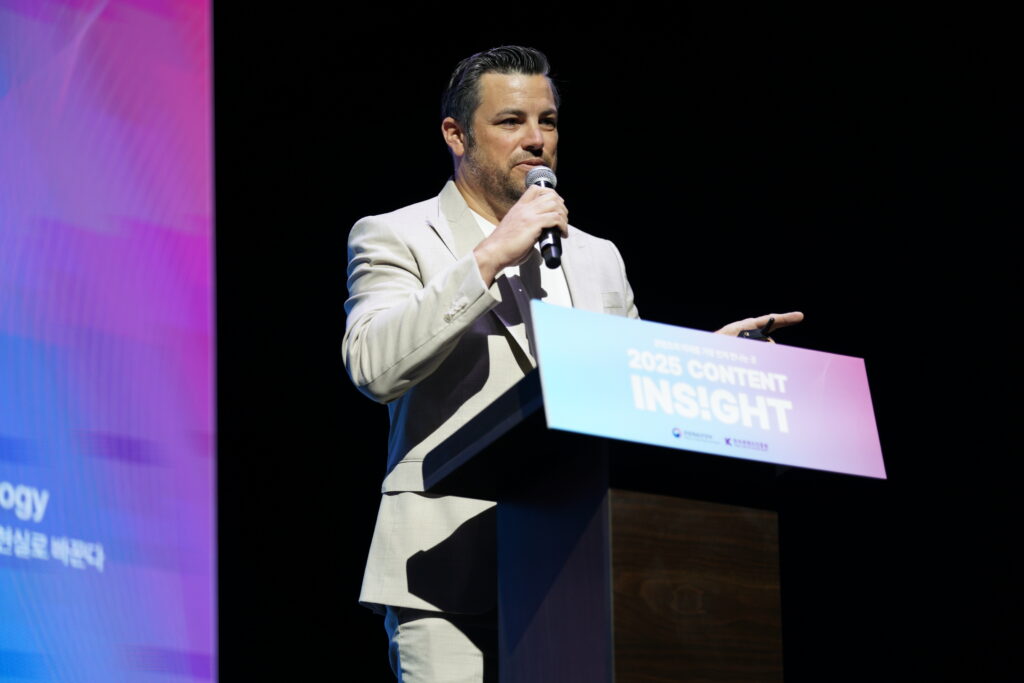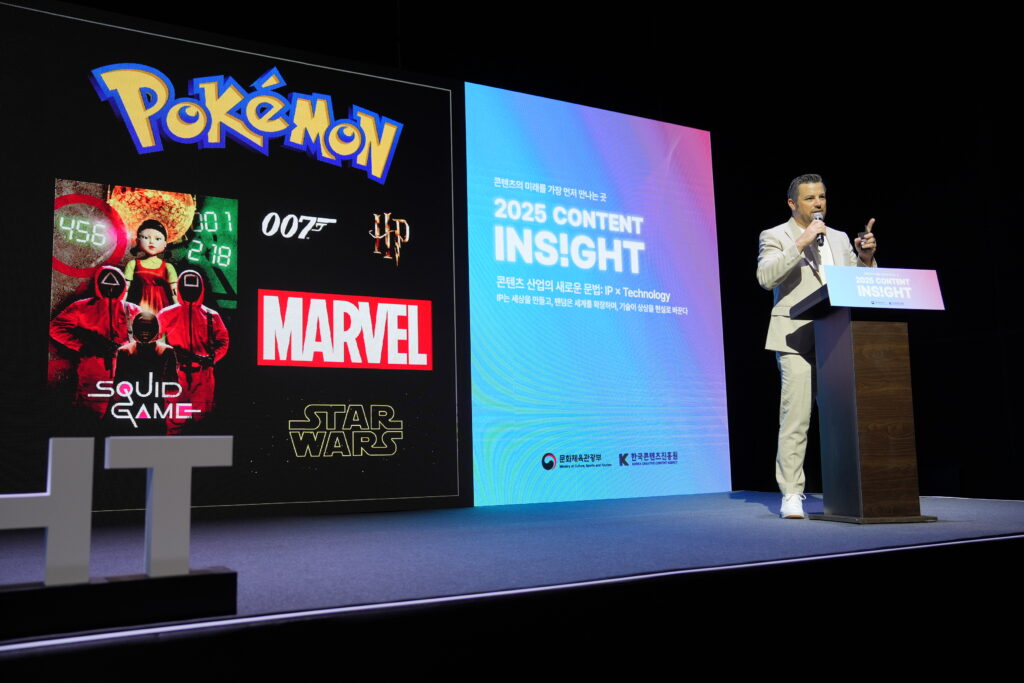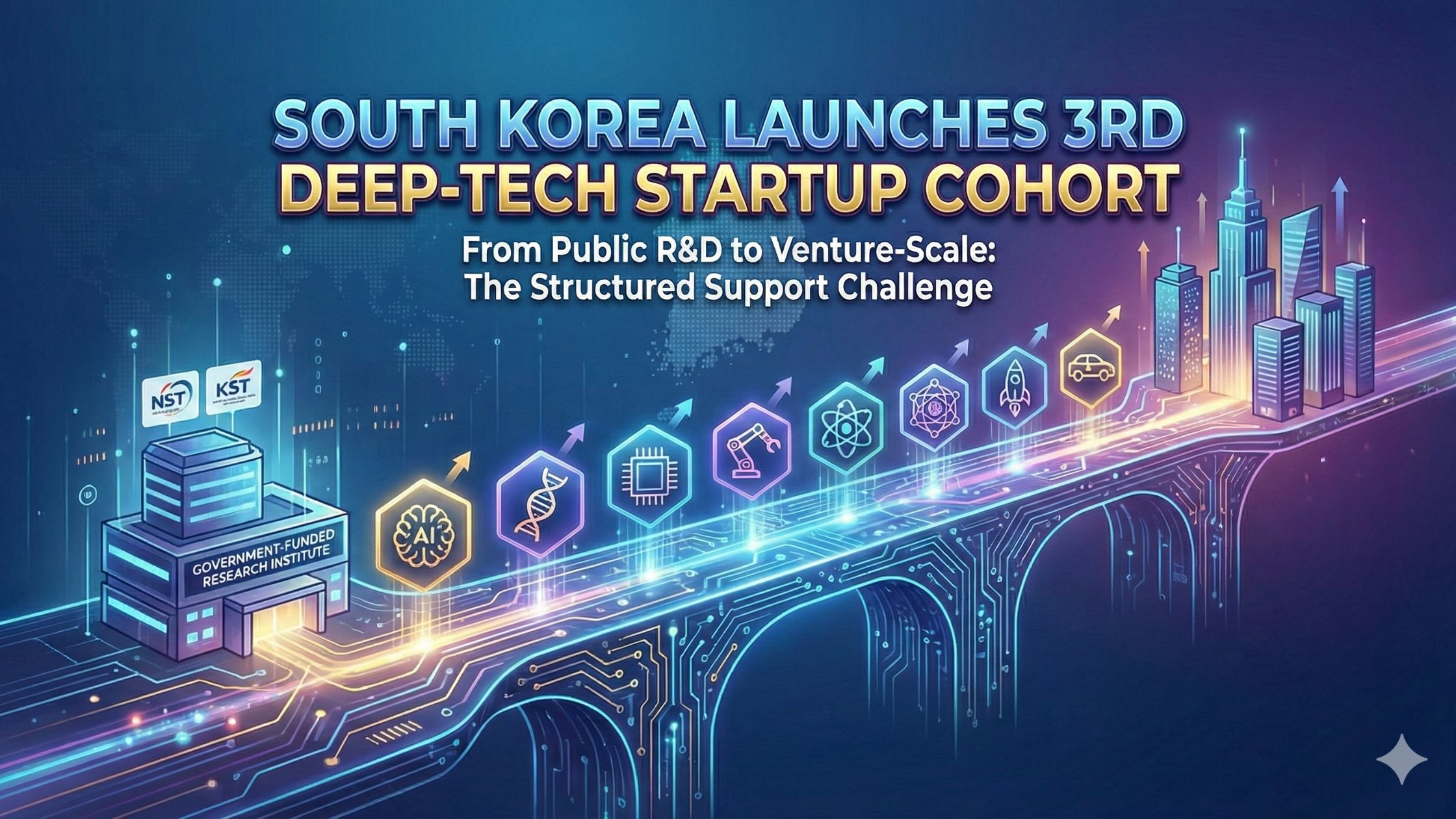AsiaTechDaily – Asia's Leading Tech and Startup Media Platform

Patrick Caligiuri on Building Global IP Universes: From Formats to Cultural Franchises
UAE-based producer Patrick Caligiuri explores how South Korea’s creative export model and the rise of transmedia storytelling are redefining global entertainment.
At Contents Insight 2025, hosted by the Korea Creative Content Agency (KOCCA) and the Ministry of Culture, Sports and Tourism (MCST), industry leaders gathered to explore how technology and creativity are reshaping the content landscape.
Among the most engaging voices at the event was Patrick Caligiuri, Executive Producer and Media Advisor to the UAE National Media Office. An experienced international television producer, Caligiuri’s session on Transmedia Expansion and Localization Strategies explored how entertainment formats evolve into franchises and how culture remains the driving force behind content that connects globally.
A Global Storytelling Architect
Patrick Caligiuri’s career shows an evolution of the global content industry itself. Having worked on internationally recognized reality and competition series such as The Amazing Race, Big Brother, and The Voice, he has spent more than two decades shaping how stories travel across borders. His expertise lies in bridging creativity with strategy, transforming ideas into global IPs that can be localized, scaled, and monetized for diverse audiences.
Currently serving as an Executive Producer and Media Advisor to the UAE National Media Office, Caligiuri helps guide the country’s efforts to develop original content and strengthen its global media footprint. His background spans unscripted entertainment, digital storytelling, and emerging media, giving him a unique vantage point on how traditional formats can evolve in an age dominated by streaming platforms and fan-driven engagement.
Caligiuri has often emphasized that technology may drive the future of content, but culture gives it meaning. Having worked across the United States, Europe, and the Middle East, he understands that while global distribution has become seamless, what truly defines success is how well content reflects the values and aspirations of its audience. His insights at Contents Insight 2025 showed that delicate balance between scalability and authenticity, between global reach and local identity.

Redefining the Language of Global IP
Caligiuri began by rethinking some of the fundamental terms that have long defined the content industry. For him, a format is not merely a replicable television template but a flexible creative framework that adapts to multiple markets without losing its essence. Formats are the building blocks of scalable content, allowing local producers to reimagine a show in their own language and cultural context.
He contrasted this with franchises, which represent a more advanced evolution of storytelling. A successful franchise extends beyond screens to create a living ecosystem that can include spin-offs, events, merchandise, and fan communities. It transforms content into an ongoing experience that audiences can interact with, rather than just consume.
Caligiuri was a cultural export. “South Korea is not just having a moment,” he said. “It has built a creative export engine through smart policy, structured talent development, and world-class infrastructure.”
The country treats culture not just as entertainment but as a national industry with global potential. This philosophy, he believes, is what enables Korean IPs to consistently outperform expectations and influence audiences worldwide.
From Replication to Expansion
Caligiuri’s session underscored how streaming platforms have transformed the lifecycle of content. What once began as a local television format can now expand across multiple media channels and evolve into a transmedia brand.
He pointed to the global trajectories of familiar titles like The Voice and MasterChef. Originally television competitions, these shows have since evolved into full-fledged cultural ecosystems. The Voice grew into live concert tours, music labels, and social media communities, while MasterChef became a lifestyle brand associated with restaurants, cookbooks, and culinary academies.
These examples illustrate what Caligiuri described as the cross-media life cycle of modern IP, where storytelling continues across different platforms and audience experiences. This transformation is powered by technology but sustained by human connection. Digital tools may accelerate distribution, but creative vision and cultural awareness make expansion sustainable.
The Global Shift in Storytelling
Caligiuri also highlighted how global audiences are changing the rules of what succeeds on screen. The success of Squid Game served as a compelling case study. The Korean series, without major celebrity actors or English dialogue, became one of the most watched shows in Netflix’s history.
He explained, “With more than 265 million views in its first season, Squid Game became the most-watched show on the planet, proving that universal storytelling does not need to come from Los Angeles—it can come directly from Seoul.”
To him, this phenomenon marked a turning point. It challenged the long-held belief that Western content dominates international markets, proving instead that authenticity and emotional universality can cross any barrier of language or culture.

A Framework for the Future
Caligiuri concluded with a simple yet powerful framework that captured the essence of his philosophy:
Formats open the door. Franchises build the house. Culture makes it a destination.
This idea encapsulates the layered evolution of global storytelling. Formats provide the structure and make a story accessible. Franchises add depth and continuity, creating worlds that audiences want to return to. But it is culture that gives content meaning, transforming it from entertainment into shared experience.
In this view, the success of global IP lies not just in its ability to scale but in its ability to belong. When a story reflects local identity while connecting to universal emotion, it becomes a destination—something audiences visit, inhabit, and carry with them.
Looking Ahead
Patrick Caligiuri’s perspective offers valuable insight for creators, producers, and investors navigating an increasingly interconnected media world. His experience, from producing global television hits to advising national media strategies, bridges both creative and institutional dimensions of content development.
In regions like the Middle East, where he now focuses much of his advisory work, Caligiuri sees immense potential for cultural storytelling. With governments and creators investing in local production ecosystems, there is a growing opportunity for homegrown stories to find global audiences.
His message aligns closely with KOCCA’s mission to position South Korea as a global leader in creative IP. Both share a vision of cross-border collaboration, where storytelling, technology, and culture intersect to create sustainable global value.
For Caligiuri, the next phase of entertainment is not about competing for global attention but about building cultural bridges. The stories that endure, he said, are those that understand people—their humor, fears, and aspirations—and translate them into experiences that travel effortlessly across the world.
About Patrick Caligiuri
Patrick Caligiuri is a media executive, producer, and creative strategist with extensive experience in global television and content franchising. Over his career, he has worked on major unscripted series including The Amazing Race, The Voice, and Big Brother, and has advised multiple international networks and cultural organizations.
Currently based in the UAE, he serves as Executive Producer and Media Advisor to the National Media Office, where he focuses on developing strategic media initiatives and supporting the region’s creative industry growth. His work bridges storytelling, audience engagement, and cultural localization, helping shape how global formats are adapted for regional audiences while retaining universal appeal.



